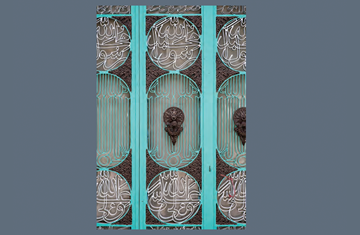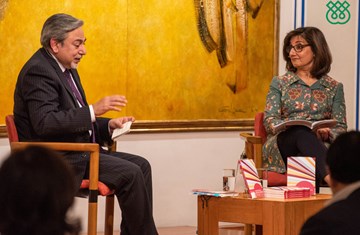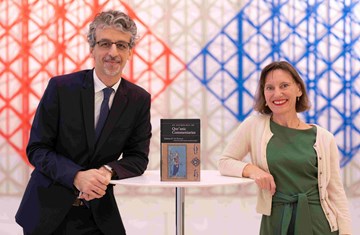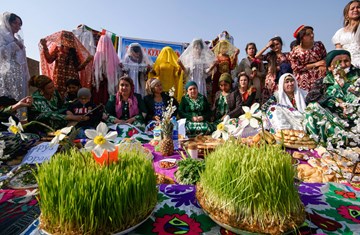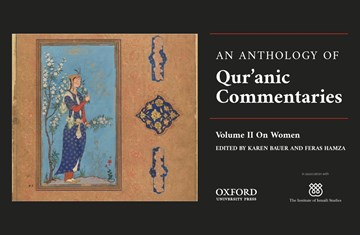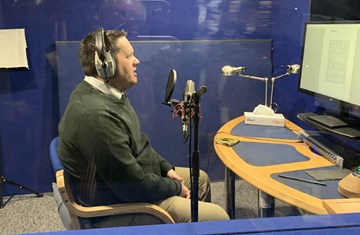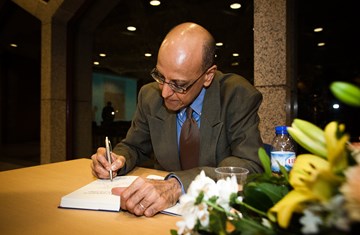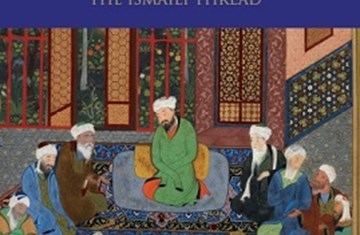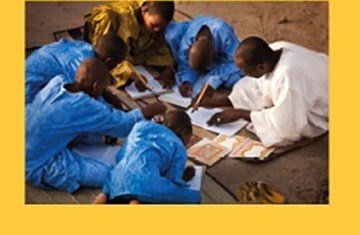The Institute’s Latest Publication Honours Wilferd Madelung’s Contributions to Islamic Studies
The Institute’s latest publication, Culture and Memory in Medieval Islam, edited by Farhad Daftary and Josef W. Meri, is a festschrift honouring the contributions of Wilferd Madelung, Laudian Professor of Arabic (Emeritus) at the University of Oxford and Senior Research Fellow at The Institute of Ismaili Studies. The collection of articles, written by 19 of Professor Madelung’s colleagues, friends and students has been published to coincide with Professor Madelung’s 75th birthday.
“In terms of his knowledge of the sources and the meticulousness with which he handles the details, [Wilferd] Madelung’s scholarship in Islamic studies is unrivalled in modern times … It is no exaggeration to state that rarely has any contemporary Islamicist made as many original contributions as Madelung to such a diversity of areas within the field of Islamic studies.”
Farhad Daftary
With some 15 books and edited volumes, 60 articles and chapters in various journals and collective volumes, 130 encyclopaedia entries and more than 160 book reviews, Wilferd Madelung has made major contributions to many aspects of medieval Muslim history and thought. With particular reference to religious schools and movements in early Islam, his studies, based on a vast array of primary sources, have enriched the discipline’s understanding of almost every major Muslim movement and community – not only early Imami Shi‘ism and the later developments of Twelver, Ismaili and Zaydi Islam but also the lesser known aspects of Sunni, Khariji and the Mu‘tazili schools of theology and philosophy.
“There is no branch of knowledge of medieval Islamic history and religion that Wilferd Madelung has left untouched. Few have been as prolific in the depth and breadth of their scholarship, while possessing the humility, humanity and perspicacity that he does. Professor Madelung is a humanist in the truest sense of the word.”
Josef W. Meri
Professor Wilferd Madelung
Wilferd Ferdinand Madelung was born on 26 December 1930 in Stuttgart, where he completed his early education at Eberhard Ludwig Gymnasium. After World War II, the young Wilferd accompanied his parents to the United States where his father Georg continued his career as an expert in aeronautics, like a number of other German scientists who had then emmigrated to America. Soon afterwards, Madelung enrolled at Georgetown University in Washington DC before going to Egypt in 1951. He studied for three years at Cairo University, and received his Bachelor’s degree in Arabic literature and Islamic history in 1953. In Cairo, where he acquired a solid grounding in classical Arabic, Madelung was a student of the eminent Egyptian scholar Muhammad Kamil Husayn (1901–1961), who edited numerous Ismaili texts of the Fatimid period in his well-known Silsilat Makhtutat al-Fatimiyyin series of publications. It was Professor Kamil Husayn who originally kindled Madelung’s interest in Fatimid history and Ismaili studies, subjects which provided the focus of his doctoral thesis written under the supervision of the late Professor Bertold Spuler at the University of Hamburg, from which he received his PhD in Islamic history in 1957. Madelung’s initial publications, dealing with early Ismaili doctrines and relations between the Fatimids and the Qarmatis of Bahrayn, were based on his doctoral thesis. These two long articles in German, published in Der Islam in 1959 and 1961 respectively, which at the time represented original contributions to modern Ismaili studies, have now acquired the status of classical treatments of their subject matters. Subsequently, Madelung retained his interest in this field of enquiry with many more contributions, including his entries ‘Isma‘iliyya’ and ‘Qarmati’ in the new edition of Encyclopaedia of Islam.
After a brief period of diplomatic service (1958–60) as the Cultural Attaché at the West German Embassy in Baghdad, Madelung’s long and distinguished career in Islamic studies followed. In 1963, he started as Visiting Professor at the University of Texas at Austin, and then joined the faculty of the University of Chicago where he taught for fourteen years as Assistant Professor (1964–65), Associate Professor (1966–68) and, finally, as Professor of Islamic History from 1969 until 1978 when he became the Laudian Professor of Arabic at the University of Oxford and a Fellow of St. John’s College. He held this most prestigious of Islamic chairs in Europe until his retirement from Oxford and its Institute of Oriental Studies in 1998. Since 1999, Professor Madelung has been affiliated to The Institute of Ismaili Studies as a Senior Research Fellow. In the course of his career, Madelung has received numerous honours and has also taught as Visiting Professor at many academic institutions such as The American University in Beirut and the University of Toronto. His standing in the field has received recognition in his election as Fellow of the British Academy.
Divided into three sections, Culture and Memory in Medieval Islam: Essays in Honour of Wilferd Madelung, focuses on subthemes related to the transmission of knowledge, the acts of memorialising and remembering and the commemoration of rulers, dynasties and conquests. With contributions by Abbas Amanat, Said Amir Arjomand, Michael L. Bates, Joseph Norment Bell, Julia Bray, Farhad Daftary, Elton L. Daniel, George Makdisi, Martin J. McDermott, Josef W. Meri, Andrew J. Newman, Ismail K. Poonawala, Wada al-Qadi, Emilie Savage-Smith, Sabine Schmidtke, Pieter Smoor, Luke Treadwell, Paul E. Walker and David J. Wasserstein, this volume will not only appeal to scholars and students of early and medieval Islamic history and theology, but also to all those interested more generally in historiography and the development and diversity of emergent religious thought.

